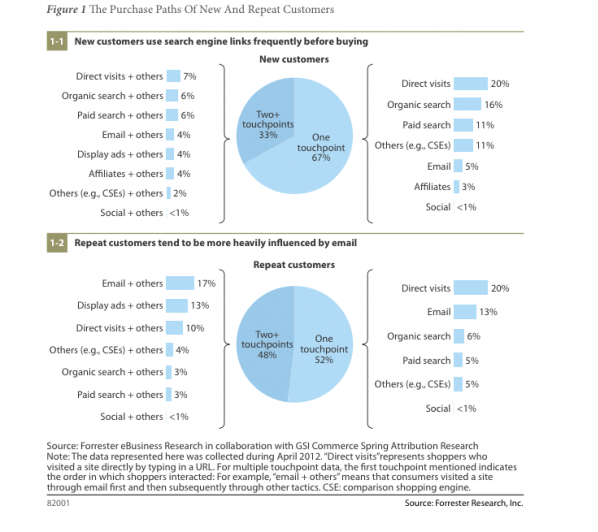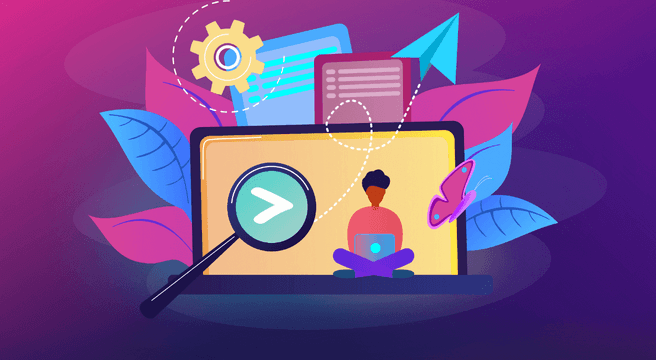Marketers are facing the challenge at the moment that they have to juggle a LOT of new online marketing channels and trends. With technology moving at such a pace, it isn’t holding back communication anymore – in fact we’re struggling to keep up with how it’s changing. I remember back to when I did my CIM qualifications and the most advanced digital got was an online banner or an email, students today probably know more about modern communication than their tutors! What this means is that we need to start getting really good at choosing which channels work best for us and focus hard on them. In a recent research report from Forrester, an analyst stated that less than 1% of online transaction tracked in the study could be traced back to social media. What’s interesting about that is it’s one of the areas marked for increase in budget and resource, despite being hard to track ROI from. In a great blog from Business Insider they showed this chart from the research which shows that search engines are used to research products, email is used to encourage repeat purchase and a lot of people are using more than one channel before they make their purchase.

You can see that social doesn’t factor very highly in there, although there could be reasons behind that:
- Social is still a relatively new kid on the block, certainly in comparison to well performing channels
- Brands may not be utilising the channel as well as others, because they don’t know how to
- Consumers may also be unsure of how to use social channels to improve their shopping experience
- That said, you may not even be looking at social right now – the important thing is that whatever channels you use are the right ones.
Some tips to help you focus your channels:
- Know what your objectives are and stick to them
- Know how you’re going to measure success of your channels
- Don’t ever use a channel just because your boss heard about it in a meeting (if this happens then be prepared to give stats as to why it’s not the best route)
- If boss insists then produce a quick report including stats as to pros and cons (and suggest an alternative if too many cons)
- Know your resource (and knowledge) limits – sometimes you need help





